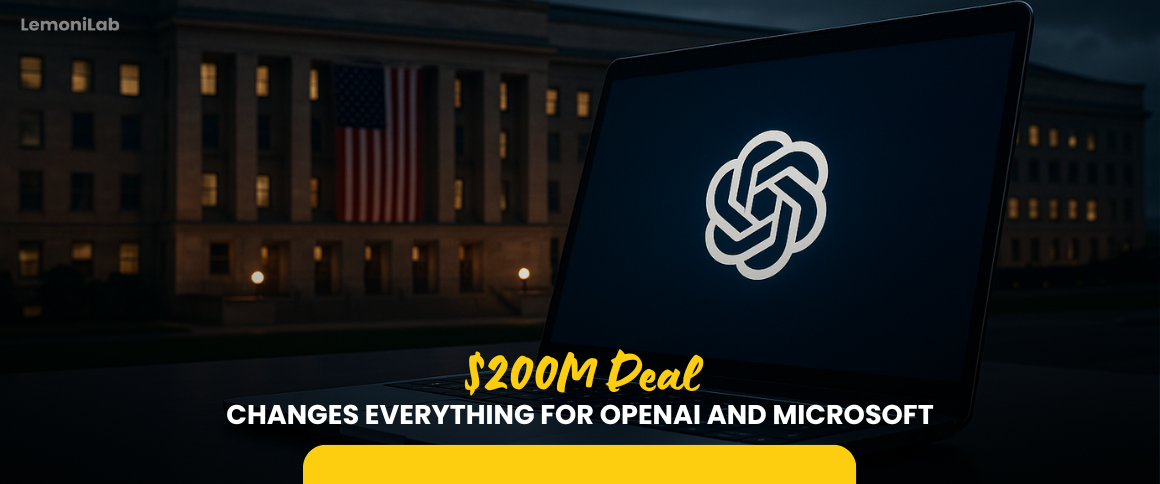OpenAI’s Pentagon Deal Hints at a Shift in AI Power, and Microsoft Might Feel the Heat

In a headline-making move, OpenAI has landed a $200 million contract with the U.S. Department of Defense (DoD) to prototype frontier AI systems for national security and federal operations. But beneath the numbers lies a deeper narrative, one that touches on the shifting balance of tech power, cracks in strategic alliances, and vital takeaways for Gulf nations investing in AI sovereignty.
What Is OpenAI Building for the DoD?
According to OpenAI’s official statement, this contract will help the agency explore how large models like GPT-4 can streamline:
-
Healthcare navigation for military personnel
-
Internal data coordination across departments
-
Proactive cybersecurity and threat detection
While these use cases fall within OpenAI’s published policies, critics have noted a quiet revision in January 2024 to its Terms of Service. Previously, the company explicitly banned “military and warfare” usage. That clause is now vague, replaced by broader language around “enterprise use.”
The Defense Innovation Unit, however, framed it more bluntly: the contractor will deliver AI prototypes “for warfighting and enterprise domains.”
Microsoft’s Role, and Its Shrinking Share
For years, Microsoft Azure has been the preferred channel through which U.S. agencies access OpenAI tools. That changed in April 2025 when Microsoft finally received clearance for classified workloads via Azure OpenAI Service. But just months later, the DoD inked a direct deal with OpenAI itself, bypassing the usual Microsoft route.
This shift hints at growing independence from Microsoft. OpenAI’s newly launched OpenAI for Government program has already expanded to serve NASA, NIH, and the Treasury, all previously within Microsoft’s domain.
What we’re seeing is a possible fracture in a long-standing partnership, with OpenAI moving from research collaborator to full-stack competitor.
Why Gulf Governments Should Take Notice
This isn’t just a U.S. story. It’s a case study in how AI firms are reshaping their roles and relationships with power centers, including governments. For GCC countries like the UAE and Saudi Arabia, here’s what this could signal:
1. AI Ethics and Regulation Are Moving Targets
What qualifies as “military” is being rewritten in real time. GCC policymakers must ensure their own AI frameworks stay agile and reflect local values, not just imported definitions.
2. Owning Infrastructure Is Strategic
As the UAE invests in sovereign AI clouds and data residency policies, this deal shows why it’s crucial. Gulf nations need vendor-neutral ecosystems that can scale without external constraints.
3. Strategic Tech Alliances Are Fragile
The cooling OpenAI, Microsoft relationship is a cautionary tale: even the strongest alliances can become competitive when government money is involved.
A Regional Perspective: Think Long-Term, Think Local
From LemoniLab’s standpoint as a UAE-based software house serving public entities, this move validates the importance of building in-region capabilities, not just adopting external AI models wholesale.
Yes, frontier models offer powerful opportunities. But GCC governments must weigh this against dependency risks, data control, and alignment with national priorities.
“Adopting U.S.-controlled models is tempting, but relying too heavily on them could compromise flexibility and sovereignty. It’s smarter to blend global innovation with regional resilience.”
Want to explore how LemoniLab supports AI innovation in government?
Contact us today for a private consultation or read our latest case study on chatbot deployment in the public sector.



